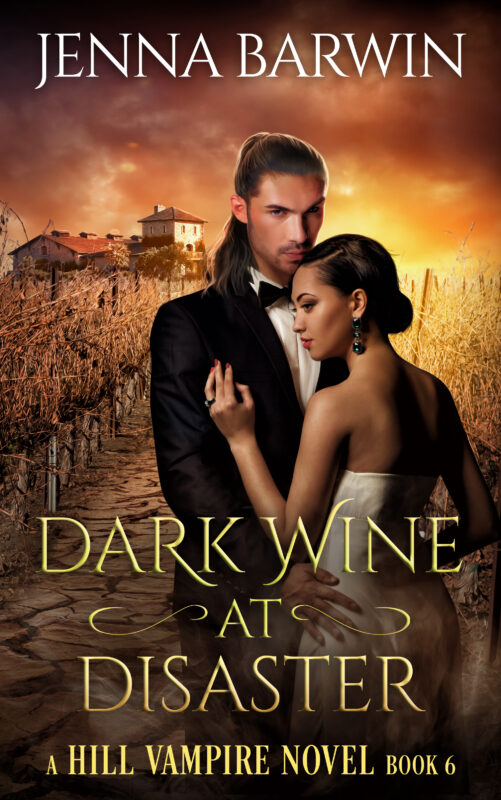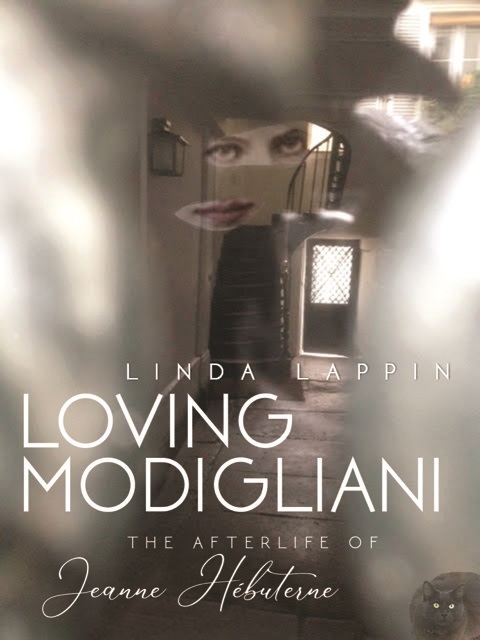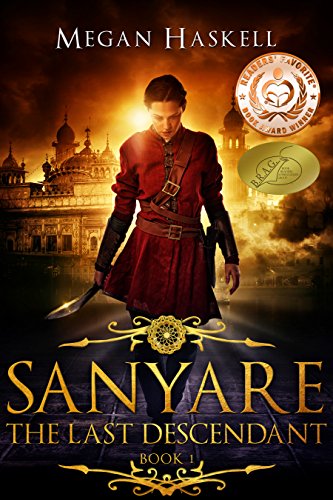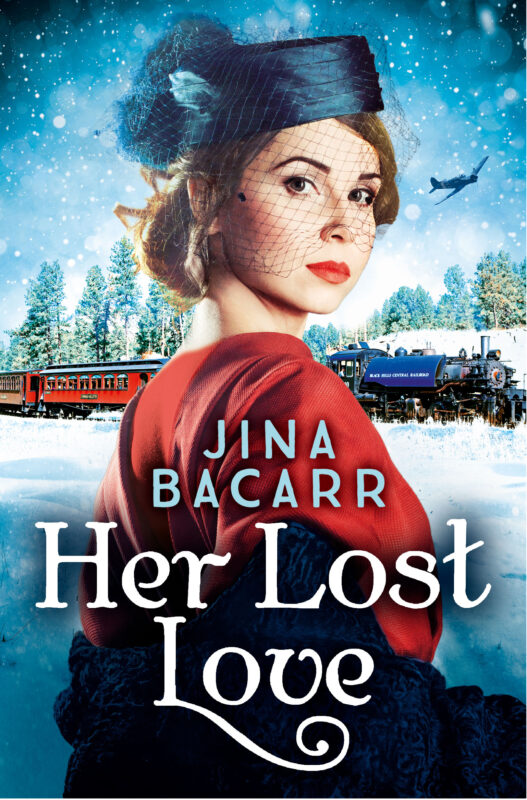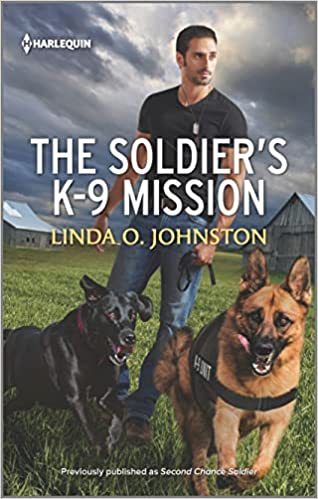August Prez Messge rj – 2009
August 2, 2009 by Marianne H. Donley in category ArchivesHave you ever been asked the question: Where do your characters come from?
I often wonder when I sit down at the computer and a personality emerges, with quirks and histories I didn’t outline or think through: Did I know a person like this? Or did I merely see someone at a party, a Dodger game, a museum who inspired the thought?
Most recently a wrote a book where the female character wears heels always, because of her diminutive stature, and always curls those legs up to sit cross-legged on any surface that isn’t a chair. Was it her history that gave her this quirk? A rebellious background (she’s a true American Gypsy) that had her sitting on tables rather than chairs? Or was it purely about being less that tall, so she didn’t want to be at the same level or lower than others when she was sitting down? Or was it a physical condition that made sitting in that posture merely the most comfortable?
Personally, I have no idea. I sat down to write a scene, and as it emerged from my fingertips, the quirks became a natural part of the action. And the book is not completed, so I still haven’t attached a reason for it yet. Now I would guess that some of you are nodding your heads. Your heroes & heroines and their personal characteristics emerge in the same manner. Others of you are appalled. How can you portray someone doing that without thinking things through and meticulously outlining their background?
I’m sure others have addressed this is classes or seminars, and probably in a more quality manner. Regardless, this is my question of the month: whether you are building the perfect hero, aspect by aspect in an outline, or if they spring whole and complex, birthed from a few lines in a scene, where do they come from?
For me, I don’t really remember ever meeting anyone who fits the description of my gypsy girl. But it must have come from somewhere. Even my busy to chaotic imagination usually doesn’t concoct someone out of air. Perhaps she is pieced together from a dozen souls whose path I’ve crossed over the years. When I originally planned this book, she was still short, but her history, her quirks and her personality are nothing like the person who has emerged onto the page.
Yes, I went through a planning stage for a number of books. Back in the 80’s (geez I turn 52 in a couple of weeks!) I attended my first Romance Writing seminar. One of the techniques that came out of the class was to identify and outline a “couple†who will be the center of your book. I created several, with a couple of lines describing each, a paragraph or so about their history, and a plot line that I thought would enable them to meet, fight, love, leave and reunite for happily ever after.
I still have those yellowing pages of notes. Three of those pairs live in three of the books I have completed over the years. (Other recent manuscripts evolved from other sources). I have about five more who still are waiting for me to write their story. What’s funny is those I did write about remind me of the remodeling jobs of some houses in old neighborhoods: you keep that one foundation beam or wall in the house, and per zoning law, it’s not a new house, although everything around it may change absolutely.
And so it is with my characters. They started as one type a person — In the case of my Gypsy, she was a mousy, bank teller with psychic visions – and as the book begins, she evolves into a character for today – a sassy, secure, security software designer (I really didn’t mean to add all that alliteration J), who has a past as a con artist. Still short, with long dark hair, but now she wears heels and sits on tabletops. And, I handed the psychic abilities over to her love interest, an LAPD cop. He was always the cop, but he was the cynical disbeliever. Now he’s still the cynical disbeliever, but he has this annoying yet useful ability to be able to tell when someone is lying, and the frightening ability to see when a crime is going to happen.
Where did they spring from? Stories we’ve read? You hope you’re not Xeroxing someone else’s character from an old memory, but one would guess you couldn’t help but retain some quirk that sticks in your mind. Articles in the newspaper? Forensic Files? CSI? Your next door neighbor? That family at Disneyland? (Have you seen some of those people?)
We are all observers of the human condition, of people whose lives we interpret and then relay on paper. Let us hope we continue to take what we see, and spin it into a tale that brings joy to our readers and insight to our world.
0 0 Read moreAugust Online Class: Using Body Launguage and Vocal Gestures to Create More Believable Characters w/ Bill Edmunds
July 26, 2009 by A Slice of Orange in category Archives********** permission to forward **********
Hi everyone! Check out the exciting online classes offered by the
Orange County Chapter of RWA!
â€Using Body Language and
Vocal Gestures to Create More Believable Charactersâ€
with Bill Edmunds
August 10, 2009 – September 5, 2009
Enrollment Information at http://www.occrwa.org/onlineclassAug09.html
COST: $20 for OCC members, $30 for non-members
Enrollment deadline: August 9, 2009
If you have specific questions, email occrwaonlineclass@yahoo.com
ABOUT THE CLASS:
“Show – Don’t tell†–
If you have been in the writing business for any time at all you have likely come upon this phrase. Editors love to use it. But what does it mean? Answering that question will be the focus of this course.
Here’s an example of two exercises we will work on together:
“What Jim said really angered Mary.†How might you convey this scene using only a description of Mary’s body language.
Which one of these two actions would be the least provocative?
“She flipped her hair back off of her shoulder with the back of her hand†or “She swung her head, causing her hair to fall back off of her shoulder.â€
You might say that we will learn how to better stir the blood of our readers by creating more believable romance characters through descriptions of body language and vocal gestures. What are vocal gestures? You can find one of them in the sentences above that signals “a lack of commitment.†Did you find it?
ABOUT THE INSTRUCTOR:
William I. “Bill†Edmunds, a freelance writer, teacher and frequent speaker, is a retired Police Lieutenant. Starting prior to his retirement from full-time police work, Bill serves as an instructor in advanced interview and interrogation techniques and statement analysis for Behavior Analysis Training Institute (B.A.T.I.) headquartered in Santa Rosa , CA . He has personally participated in the training of more than 11,000 law enforcement professionals, teaching on how to detect deception and get to the truth.
He has served on the staff of the Mount Hermon Writer’s conferences for a number of years and has taught on, “How to Create More Believable Fiction Characters,†at best selling author, Lauraine Snelling’s Advanced Fiction Writers courses.
He has two books currently in print. “All Roads Lead to Zion ,†published by Paracletus Press, (www.RoadstoZion.com) and “Mary’s Lavish Gift,†published by Every Good Gift (www.Everygoodgift.com). He and his wife, Joan, reside, romantically, together in Clearlake , CA .
Enrollment Information at http://www.occrwa.org/onlineclassAug09.html
COST: $20 for OCC members, $30 for non-members
Enrollment deadline: August 9, 2009
Coming in September –
“Plot That Novel YOUR Way”
with Sue Viders and Becky Martinez
It provides explanations of ways to plot and goes into detail on how authors who write by the seat of their pants can use those ways to make their own plotting—or lack of it—easier.
http://www.occrwa.org/onlineclasses.html. Check out our full 2009 list of workshops.
Want to be notified personally two weeks before each class? Be sure
you’re signed up for our Online Class Notices Yahoo Group! Sign up at
the bottom of http://www.occrwa.org/onlineclasses.html or send a blank
email to OCCRWAOnlineClassNotices-subscribe@yahoogroups.com
********** permission to forward **********
0 0 Read moreMy Body of Content, My Choice
July 24, 2009 by A Slice of Orange in category Archives tagged as Association of American Publishers, Authors, Authors Guild, Google SettlementMany of you have heard of the suit the Association of American Publishers and the Author’s Guild (a class action suit) brought against Google in response to Google’s plans to digitize copyrighted content without the copyright holder’s permission. Google additionally gives a complete digital copy to the libraries from whom they were getting the content, to do with what they wanted.
While Google said they were only planning on using “snippets” (not a legally defined quantity, so it’s whatever they decide) to aid in search, and felt that the open wording of Fair Use would cover them in making entire copies of protected material, Publishers and the Author’s Guild did not agree. Both Publishers and the Author’s Guild felt that anyone making a full copy of a copyrighted work should ask the copyright holder’s permission.
After two years of negotiation, a Settlement was reached, which you also may also have heard about. The Settlement has been delayed and there will be fairness hearings on October 7th. Now it seems that everyone and their kitchen sink is weighing in with issues, and the settlement may not go through. That would not be good news, in my opinion. While the settlement is by no means perfect, it’s a start. Without it, content creators and publishers are left very vulnerable on the digital frontier.
And it is literally a frontier. To continue the metaphor, settlers are going out in their covered wagons, putting stakes in the ground, claiming the open land. It’s not an easy life, and initially, fortune seems to favor lawlessness. But once enough people move out there, laws become increasingly important to be able to survive and thrive as a society. You’ve seen the movies–it’s a challenging process, but respecting property and creating and abiding by a rule of law is a key next step. That’s what needs to happen on the digital frontier, and the settlement is a great first step.
For those that don’t see the problem of making a full digital copy, here is my metaphor: If I want to show (or not show) parts of my body to the public–maybe I wear a short skirt, or maybe I wear a scarf, or maybe I go topless in a particular place–that’s my choice. But to those that want to take a full body scan of all of me–yes, EVEN if you promise you’ll only show little bits, even if it’s for medical reasons–you have to ask me. My body of content, my choice.
John Sargent, an AAP member, was featured in an interview in the June 8th issue of Publishers Weekly (Sargent Makes the Case). Additionally, Tom Allen, the new CEO of the AAP had a recent op-ed in Publisher’s Weekly.
In recent days some strong arguments in favor of the Settlement have also appeared in print from individuals who are not party to the Settlement. Reuter’s financial columnist Mark Gimien has a recent piece “In Defense of Google Books” which describes the benefits and goes on to debunk some of the myths that have been circulating with great clarity and is well worth reading.
Another is a letter to the Financial Time“Booklovers should cheer Google’s plan” from David Balto a Senior Fellow at the Center for American Progress and former Policy Director of the Federal Trade Commission. These should offer a better understanding of what’s at stake.
I also wanted to include some broad information about the Settlement and why it seems a very positive step. Take a moment to review the points. Romance may not be on the front lines of what is at issue, but the principal affects us all, and we need to stand together:
• Provide readers and researchers with access to millions of out-of-print books, many of which are currently difficult or impossible for readers to obtain, in a searchable online database.
• Turn every public library building in the U.S. into a world-class research facility by providing free access to the online portal of out-of-print books.
• Permit any college or university in the U.S. to subscribe to the same rich database of out-of-print books.
• Give new commercial life to millions of books, while protecting the economic rights of authors and publishers.
If not approved by the court, the litigation between AAP, the Authors Guild and Google may continue for years, and with a great risk that authors and publishers will have no effective means to stop the widespread use of copyrighted material that is likely to follow.
I. Benefits for Readers and Researchers
The settlement unlocks a vast archive of out-of-print books, providing readers and researchers with far greater access to books than ever before.
Access at your public library. The settlement turns every library into a world-class research facility, by offering every public library building in the U.S.–all 16,500 of them–a free online portal to millions of out-of-print books.
Access at colleges and universities. The settlement offers students and teachers in even the smallest and most remote American colleges and universities access, through institutional subscriptions, to millions of books previously available only in the largest academic libraries in the country. Faculty members and students will be able to tap into this library from their offices and dorm rooms.
Access at your computer. Anyone online in the U.S. will have free “preview†access to hundreds of millions of pages of text (up to 20% of each book). Review hundreds of accounts of the Battle of Vicksburg, or of the beginnings of the Industrial Revolution, or of the sources and interpretation of Moby Dick, at no charge. Find one book particularly compelling? Buy access to the entire book. Access to public domain books is free, of course, and authors controlling the rights to their books can choose to give away access for free.
II. Benefits for Authors and Publishers
Out of print books have value, but that value is lost to the market and to authors and publishers. The settlement breathes new commercial life into out-of-print books, while leaving the existing market for in-print books alone.
Find new readers. Out-of-print books need no longer be relegated to the used book market. The settlement will make out-of-print works available to hundreds of millions of readers, through ad-supported previews, sales of online editions, and institutional subscriptions. If a book catches on, there will be sales data to prove it, which may create an opportunity to bring the work back into print in traditional form.
In-print books are unaffected. A cardinal rule in the negotiations was not to disturb the market for in-print books. Titles that are in print won’t be made available through any of the means described in the settlement, unless the author and publisher expressly want them to be.
A Book Rights Registry to protect rightsholders. A non-profit registry governed by authors and publishers will oversee the settlement on their behalf, to help make sure rightsholders receive the benefits they’re entitled to. (Sign up for the Registry by filing a claim at googlebooksettlement.com.)
A fair share of revenues. 63% of gross revenues go to authors and publishers; Google keeps 37%. Funds will be paid to the Book Rights Registry, which will pay authors and publishers after retaining a modest administrative fee. If rights have reverted to authors, they will receive 100% of the rightsholder revenue.
Unprecedented control for authors and publishers. Authors and publishers will manage their rights through an account management page at the Book Rights Registry. Authors who control rights to their works, for example, may choose to allow Google to display ad-supported previews of books, sell online editions (authors may set the price or let an algorithm do it for them), and license the work to colleges and universities, or they may choose to block all display uses. Authors can change their minds, at any time, with reasonable notice. What if a book comes back into traditional print? The rightsholder can then simply turn off all display uses, if it chooses, and permit the publisher to sell the work through standard retail outlets.
Authors’ estates, too. Authors’ estates exercise the same rights as authors.
At least $45 million in payments for unauthorized scanning. Any of Google’s digitizing of in-copyright books done before May 5, 2009 is considered unauthorized under the settlement. Google will pay to obtain a release of these copyright infringement claims. Under the settlement, Google will pay at least $60 and as much as $300 to rightsholders for each book that it scanned without authority, for a total payment to rightsholders of at least $45 million.
III. Benefits for All
Viable Market. The settlement creates a viable economic structure for a new digital market of on-line access to out-of-print and lesser known works.
Encourages competition. The settlement encourages competition by making non-exclusive all the rights granted to Google in the Agreement and by empowering the Book Rights Registry to negotiate arrangements with Google’s competitors.
Well, if you’ve gotten this far, congratulations and thank you! I want to continue to inform and clarify this issue for the community. We need educated advocates to support this important step.
What to write VS How to write
July 19, 2009 by Marianne H. Donley in category Archives tagged as Member At Large, Monica StonerMonica Stoner, Member at Large
Years ago I had the great good fortune to attend a weekend workshop with Paul Gillette. In the process of having our work analyzed, he brought up the concept: “I can teach you HOW to write but I can’t teach you WHAT to write.” It sounded quite wise, and as he was saying this in praise of something I had submitted I tucked the concept away to consider later.
Come forward through years of writing and not writing, into a time when of new experiences. I’ve had the great good fortune of judging contests. I am amazed at the quality of work entered. Even though not everything is ready to submit, it’s clear these people have put a lot of thought into their work, and have the principles of formatting, sentence structure and basic usage down pat.
Every now and then, though, I review an entry lacking in all those basic writing skills but so rich in story I’m stunned. Just as rarely I read something perfectly crafted, showing great skill in word choice yet totally lacking in imagination. Finally, I understand what Paul Gillette was telling us. Anyone can learn to write with an acceptable level of skill but not everyone can come up with a story that grabs at the reader and demands we drop everything else to finish the book.
Who would have the easier task for improvement – the person with the excellent skills but ordinary story, or the person with the great story but little idea how to organize her thoughts into words? I’m not really sure, both have a hard road ahead of them. A lot will depend on how badly they want to write, and how much it means to them to finish the book. Then the next book.
Happy writing
0 0 Read moreBook Trailer: Does it matter if it’s Black and White?
July 11, 2009 by A Slice of Orange in category Archives tagged as cleopatra, Confessions of a Podcast Goddess, perfume, spiceby Jina Bacarr
Last month I posted the book trailer for my latest Spice release, Cleopatra’s Perfume, about a woman’s insatiable appetite for sex and adventure in 1939 Cairo (also Berlin and London) when the world was teetering on the brink of war.
I put together the one-minute book trailer in color and a second trailer in color and black and white (similar to when Dorothy visits Oz in the 1939 film and the screen goes technicolor). The interesting thing is that the black and white/color trailer has gotten more hits than the color trailer.
So when fellow OCC member, Bobbie Cimo suggested I try ALL black and white, I thought, that’s a cool idea. (Thankz, Bobbie!) So I put it together and uploaded it to several sites. What’s really amazing is that on one site I received a thousand hits in one day–and on others, just a handful. So you never know…
You be the judge: Here’s the black and white book trailer for Cleopatra’s Perfume!!
Best,
Jina
Follow me on Twitter: www.twitter.com/jinabacarr
Jina Bacarr is also the author of The Blonde Geisha , Naughty Paris, Tokyo Rendezvous, a Spice Brief, and Spies, Lies & Naked Thighs, featuring an Indiana Jones in high heels.
3 0 Read moreAffiliate Links
A Slice of Orange is an affiliate with some of the booksellers listed on this website, including Barnes & Nobel, Books A Million, iBooks, Kobo, and Smashwords. This means A Slice of Orange may earn a small advertising fee from sales made through the links used on this website. There are reminders of these affiliate links on the pages for individual books.
Search A Slice of Orange
Find a Column
Archives
Featured Books
LOVING MODILIANI
A ghost story, love story, and a search for a missing masterpiece.
More info →SANYARE: THE LAST DESCENDANT
A woman torn between honor and survival…
More info →HER LOST LOVE
All she wants for Christmas is to save the man she loves…
More info →Newsletter
Contributing Authors
Search A Slice of Orange
Find a Column
Archives
Authors in the Bookstore
- A. E. Decker
- A. J. Scudiere
- A.J. Sidransky
- Abby Collette
- Alanna Lucus
- Albert Marrin
- Alice Duncan
- Alina K. Field
- Alison Green Myers
- Andi Lawrencovna
- Andrew C Raiford
- Angela Pryce
- Aviva Vaughn
- Barbara Ankrum
- Bethlehem Writers Group, LLC
- Carol L. Wright
- Celeste Barclay
- Christina Alexandra
- Christopher D. Ochs
- Claire Davon
- Claire Naden
- Courtnee Turner Hoyle
- Courtney Annicchiarico
- D. Lieber
- Daniel V. Meier Jr.
- Debra Dixon
- Debra H. Goldstein
- Debra Holland
- Dee Ann Palmer
- Denise M. Colby
- Diane Benefiel
- Diane Sismour
- Dianna Sinovic
- DT Krippene
- E.B. Dawson
- Emilie Dallaire
- Emily Brightwell
- Emily PW Murphy
- Fae Rowen
- Faith L. Justice
- Frances Amati
- Geralyn Corcillo
- Glynnis Campbell
- Greg Jolley
- H. O. Charles
- Jaclyn Roché
- Jacqueline Diamond
- Janet Lynn and Will Zeilinger
- Jaya Mehta
- Jeff Baird
- Jenna Barwin
- Jenne Kern
- Jennifer D. Bokal
- Jennifer Lyon
- Jerome W. McFadden
- Jill Piscitello
- Jina Bacarr
- Jo A. Hiestand
- Jodi Bogert
- Jolina Petersheim
- Jonathan Maberry
- Joy Allyson
- Judy Duarte
- Justin Murphy
- Justine Davis
- Kat Martin
- Kidd Wadsworth
- Kitty Bucholtz
- Kristy Tate
- Larry Deibert
- Larry Hamilton
- Laura Drake
- Laurie Stevens
- Leslie Knowles
- Li-Ying Lundquist
- Linda Carroll-Bradd
- Linda Lappin
- Linda McLaughlin
- Linda O. Johnston
- Lisa Preston
- Lolo Paige
- Loran Holt
- Lynette M. Burrows
- Lyssa Kay Adams
- Madeline Ash
- Margarita Engle
- Marguerite Quantaine
- Marianne H. Donley
- Mary Castillo
- Maureen Klovers
- Megan Haskell
- Melanie Waterbury
- Melisa Rivero
- Melissa Chambers
- Melodie Winawer
- Meriam Wilhelm
- Mikel J. Wilson
- Mindy Neff
- Monica McCabe
- Nancy Brashear
- Neetu Malik
- Nikki Prince
- Once Upon Anthologies
- Paula Gail Benson
- Penny Reid
- Peter Barbour
- Priscilla Oliveras
- R. H. Kohno
- Rachel Hailey
- Ralph Hieb
- Ramcy Diek
- Ransom Stephens
- Rebecca Forster
- Renae Wrich
- Roxy Matthews
- Ryder Hunte Clancy
- Sally Paradysz
- Sheila Colón-Bagley
- Simone de Muñoz
- Sophie Barnes
- Susan Kaye Quinn
- Susan Lynn Meyer
- Susan Squires
- T. D. Fox
- Tara C. Allred
- Tara Lain
- Tari Lynn Jewett
- Terri Osburn
- Tracy Reed
- Vera Jane Cook
- Vicki Crum
- Writing Something Romantic
Affiliate Links
A Slice of Orange is an affiliate with some of the booksellers listed on this website, including Barnes & Nobel, Books A Million, iBooks, Kobo, and Smashwords. This means A Slice of Orange may earn a small advertising fee from sales made through the links used on this website. There are reminders of these affiliate links on the pages for individual books.

